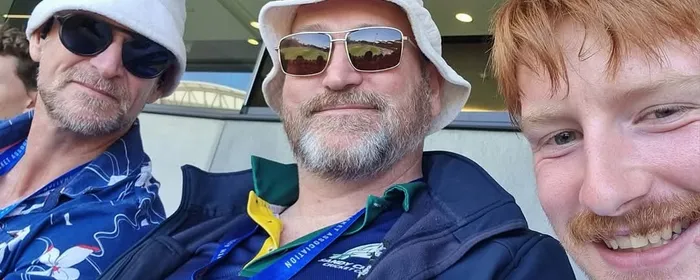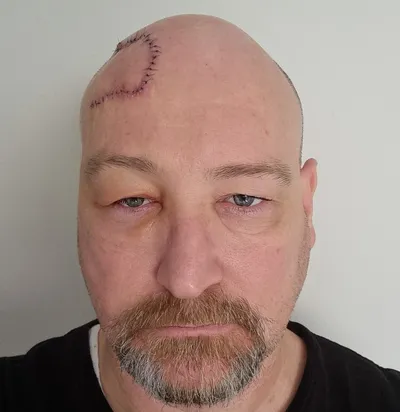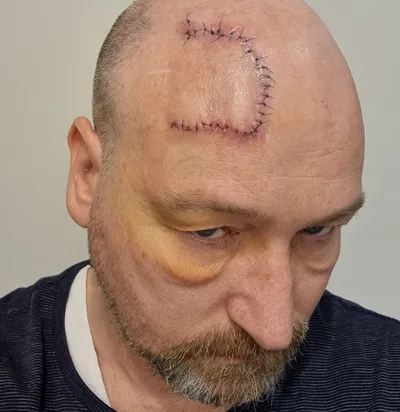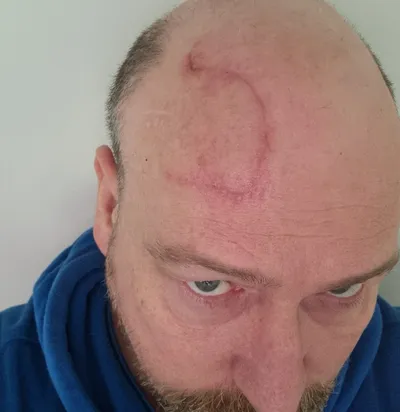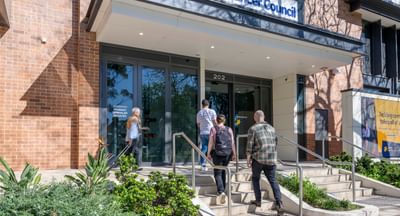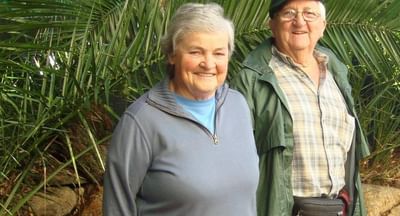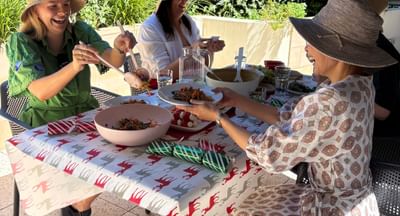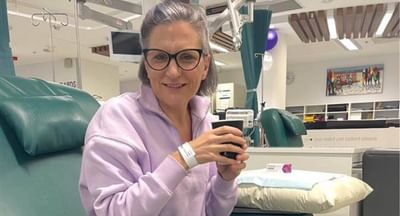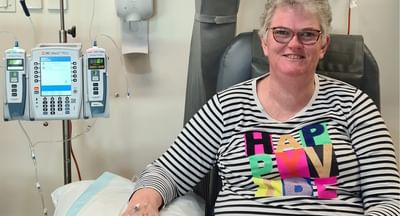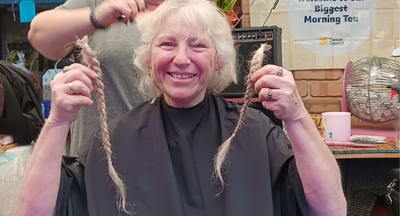“I’d been playing cricket in an old helmet which had a spiky bit of Velcro sticking out of it. It’d scratched my forehead over and over during the season, eventually forming a sore.”
Darren was fairly certain the sore was from the Velcro irritating his skin—and wasn’t too concerned.
But when the sore still hadn’t healed by the following cricket season, Darren decided it was time to get it checked out.
I went to visit my GP and he confirmed that it was actually a basal cell carcinoma, which was a bit shocking. Especially when he said I’d had to have it cut out and stitched up.
After testing, Darren was told the cancer was outside preferred margins and to keep an eye on it—looking out for any changes in colour, size, shape, or texture.
“Around March 2021, I thought the scar was looking like it had changed, so I returned to my doctor for a check-up. Sure enough, the cancer was back. Two weeks later I had Mohs micrographic surgery, where they test the cancer as they cut—and remove more, if needed. The good thing is they try to get all the cancer in one go.”
Unfortunately, the surgeon had to make a wider incision in Darren’s forehead than expected—it couldn’t just be stitched back together, or he’d have a permanently raised right eyebrow.
“Instead, they had to carve a big reverse C in my head to have enough skin to stretch down to accommodate what they’d taken out. As a result, my forehead is quite stretched, the recovery has been slow. A quarter of my head is numb, and my right eye feels like it’s open whenever it’s actually closed.”
Not only did Darren’s first few weeks back at work leave him exhausted, he had to adjust to feeling self-conscious about his facial scar.
Darren admits there have been challenging moments—but he has faced them all with a positive attitude, and an understanding that ‘a lot of people have it much worse than me’.
“In the past I was a bit blasé about sun protection, which didn’t help. All you guys out there, playing sport or having a beer in the garden, learn from my experience. It’s not hot days that causes skin cancer, its UV radiation. Cover up—sunscreen alone isn’t going to cut it.”
Need more information about protecting your skin and how to be sun safe to reduce your cancer risk? Take a look at Cancer Council SA’s SunSmart resources HERE and be sure to download our free SunSmart app here. Because UV can’t be seen or felt, always check the UV and if it’s 3 and above, protect your skin in five ways and slip, slop, slap, seek and slide.
If you’re worried about any spots on your skin, or not sure what to look out for, download our FREE Cancer Council skin check guide or visit your GP.
